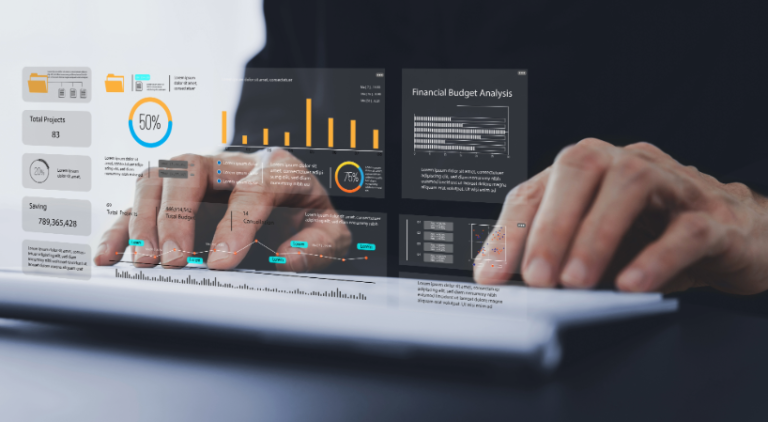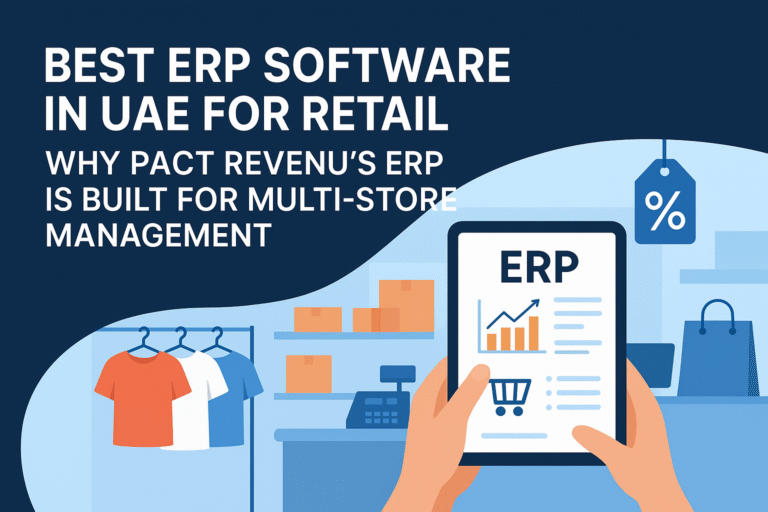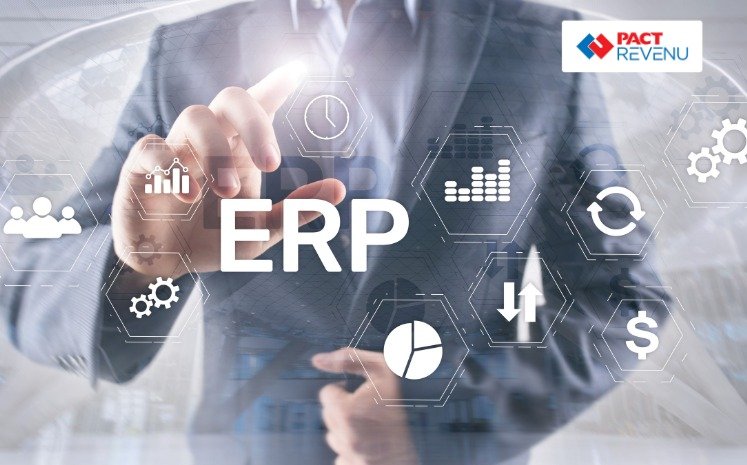What is ERP & Why do you need it? – Complete Guide
Introduction
ERP is a buzzword in all types of business environments across the world today. But there are chances that you might have heard about it but really don’t know what is ERP and why exactly you need it. That’s just alright.
What is ERP
ERP or the full form of ERP is Enterprise Resource Planning, refers to the business management software that organizations use to streamline and automate their day-to-day operations. An ERP software integrates the functions of all departments in an organization such as Accounting, Procurement, Sales & Marketing, Warehouse, Manufacturing, Human Resources, etc.
Why do businesses need ERP
The core concept of ERP is a central & shared database for all departments in an organization. Hence, when new information is entered in one place, the related information gets automatically updated. For example, imagine a product is sold. It implies a reduction in inventory and cash credited to the company. If you enter a sales transaction in ERP software, it automatically reduces the count of inventory and updates the cash/bank book. Using a centralized database, the ERP system collects information from each department, integrates & processes them, and makes it available to all other departments instantly. ERP software also automates several repetitive tasks necessary for day-to-day business operations. Here is an illustration that explains the concept of ERP. Having said that, an ERP system not only integrates different departments in an organization but also different business units across different geographies.
Benefits of ERP
The benefits of an ERP system may seem simple but have notable business implications. It is because ERP is the solution to the most trivial yet critical business problems. Let us look at some of the basic ERP benefits.
- Saves Time: Imagine you have to make a sales forecast to present before the management. What will you do? Go to previous months’ spreadsheets and calculate your future sales after applying a series of formulae? It probably takes a few hours. It becomes worse if you are not an expert in excel. What if you get a forecast within a single click? That is what an ERP does. It is not just with sales forecast. ERP automates various complex functions like bank account reconciliation, inventory reorder management, and material resource planning to name a few. These core functions are so critical but time-taking when done manually. With an ERP system, you get them done in less than minutes.
- Zero error: For businesses, a small error can cause a million-dollar loss. What would happen if your production stopped for a day because one raw material was out of stock and you didn’t know it in advance? How do stock-outs happen? Either you made a fault in stocktaking or you forgot to re-order the item on time. Both are human errors and can be solved by an ERP system. ERP gives you real-time inventory levels and it can automate reorder management. This is just an example. Human errors can happen in other departments too. Where ever it may, an ERP can save you.
- Cost savings: An ERP software not only saves money by eliminating errors but also saves money by optimizing operations. Automation of processes will free your manpower of repetitive tasks. You can utilize their abilities in matters that need human attention. Maintaining an optimal level of inventory can save inventory carrying costs and reduce wastage. Automating accounts receivables will ensure that the credit given is always taken back. Allowing the ERP to manage accounts payable will protect you from late payment penalties too. ERP software not just saves money, it also increases revenue. With the right sales forecast, you can make the best use of all sales opportunities.
- Real-time & instant access to information: Having the most updated and complete information at your finger-tip enables businesses to respond to changes quickly. For example, if you have a customer on phone with a complaint you cannot take hours to understand the customer’s order history from books or digitally saved documents. You need to have complete information about the customer handy to promptly respond to the situation at hand. The central database of the ERP system will give you instant access to correct and complete information about any customer and help you tackle such unexpected events.
- Increased visibility into business processes: When organizations grow, business processes tend to become more complex. It becomes difficult to track orders and monitor the staff. Such situations can lead to severe mistakes and even fraudulent practices. And they go unnoticed as your business is big. Procurement fraud is commonplace in many large organizations. The reasons behind the fraud could be so many. However, an ERP with a procurement module can easily mitigate the risk of procurement fraud. This is done by implementing work-flows and approval mechanisms. All actions are electronically recorded and readily visible to the authorities concerned.
- Customer happiness: Making your customers happy is the ultimate goal of all businesses. And that comes primarily from prompt & correct service. ERP software gives you access to the information you need to quickly respond to customer demands. It also enables you to give personalized services and execute loyalty programs.
- Standardization of business processes: Standardization of processes refers to implementing technical standards for each action done in an organization. Be it selecting a vendor, or delivering a service, if you have pre-approved operating procedures it benefits you in several ways. It increases efficiency, guarantees consistent performance, and ensures product/service quality. ERP systems standardize processes by implementing workflows.
- Reporting & decision making: A business’s success is defined by the decisions it makes. ERP software gives the management reports based on real data. It further utilizes BI capabilities to visualize data. When the management gets such information, they become insights enabling them to make ’informed decisions.’ For example, with a sales report generated by ERP, one can quickly identify the products which outperform, those that underperform, seasonal changes in sales, geographic-specific preferences of products, and whatnot. These reports are generated in ERP within seconds while you may need to mine your excel sheet for hours to get such valid insights.
- Compliance: On top of various corporate rules, there are several federal and regulatory compliances that organizations are subject to. VAT implementation in the Middle East and GST in India are two examples. ERP system takes into account these compliances while processing each transaction and makes it worry-free for you.
More and more benefits of ERP can be listed here. But those mentioned above are generic and apply to most businesses. We are sure you found many of these situations relatable. And that’s exactly why you need an ERP system. All types of businesses, be it big or small across all industries need ERP software to remain competitive in today’s business environment. To best meet your business-specific requirements you might need customized ERP solutions.
Get Started with PACT ERP
PACT RevenU is one of the most used, in demand, best, and most customizable ERP Software in Dubai, that gives industry-specific, modular ERP solutions. PACT also has specialized ERP solutions for small, medium, and large businesses in UAE.
Is your business suffering from manual processes and a lack of automation? Are you curious about how can PACT ERP Software transform your business? Do you also want to know why PACT is becoming most used ERP software in UAE? Then give us a call today or book a free demo now.






